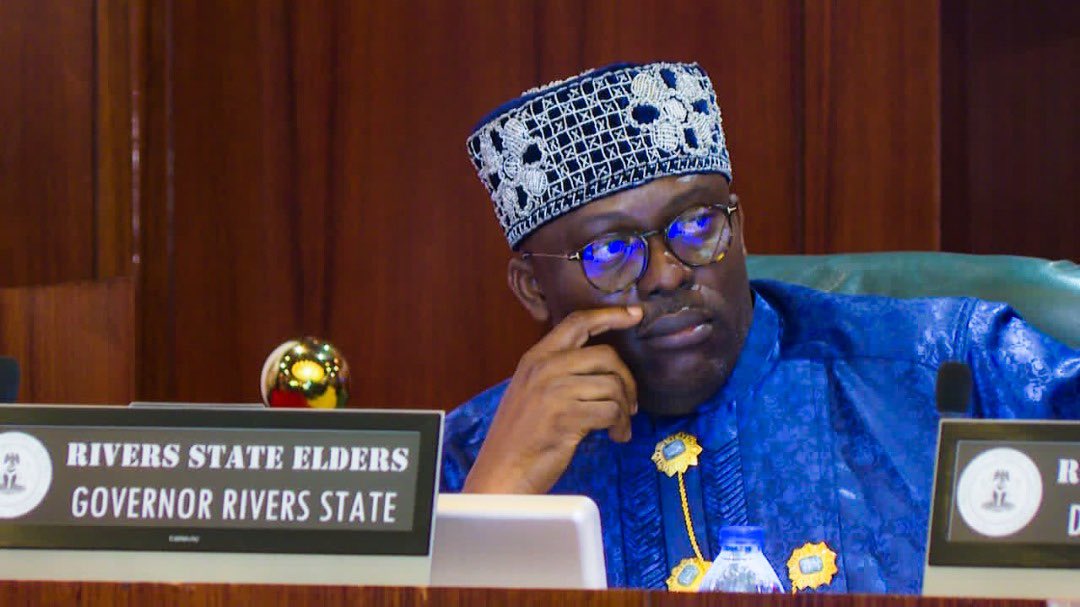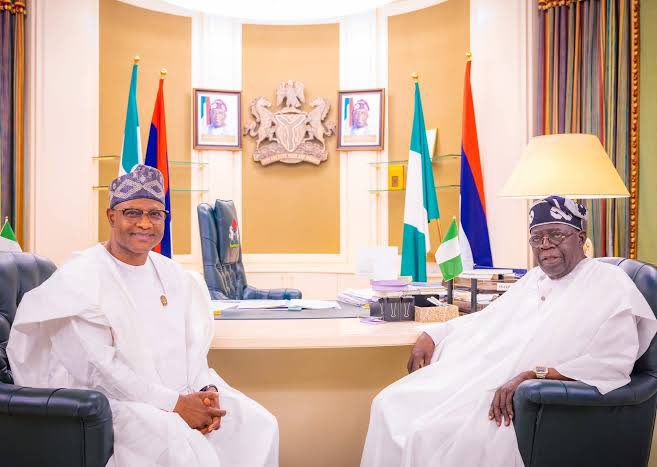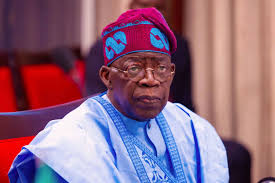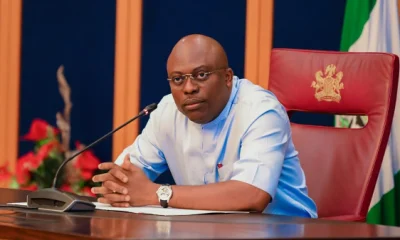Politics
Tensions Soar in Rivers State as Ijaw Groups Warn Against Fubara’s Impeachment

Tensions Soar in Rivers State as Ijaw Groups Warn Against Fubara’s Impeachment
The political crisis in Rivers State has reached a boiling point as major Ijaw groups, including the Ijaw National Congress (INC) and the Ijaw Youths Council (IYC), issued a stern warning against the impeachment of Governor Siminalayi Fubara. The groups declared their readiness to defend the governor’s mandate, warning that any attempt to remove him could destabilize the Niger Delta and disrupt oil production in the region.
Political Tensions Escalate
This warning comes after the expiration of a 48-hour ultimatum issued by the Martin Amaewhule-led Rivers State House of Assembly, demanding that Governor Fubara resubmit the 2025 budget for approval. The political face-off intensified after the Supreme Court’s ruling on February 28, 2025, reaffirmed the legitimacy of the Rivers Assembly while ordering the seizure of state allocations and nullifying the October 2024 local government elections.
At its first sitting following the ruling, the Assembly instructed Fubara to present the budget within 48 hours, emphasizing that failure to comply could result in severe consequences. With the deadline set to expire on March 5, 2025, tensions have escalated, prompting strong reactions from Ijaw groups and other stakeholders.
Ijaw Leaders Vow to Defend Fubara
Reacting to the developments, INC President Prof. Benjamin Okaba strongly condemned the impeachment threats, describing them as a direct attack on the Ijaw people, who he said have historically played a crucial role in Rivers State politics. He warned that any attempt to remove Fubara could have dire consequences for national peace and economic stability, particularly in the oil-rich Niger Delta.
“If Governor Fubara’s tenure is truncated by the Martin Amaewhule-led Assembly or any other force, the INC cannot guarantee the sustenance of the current peace in the Niger Delta, nor the continued rise in oil production,” Okaba declared.
Historical Context and Ijaw Contributions to Rivers Politics
Okaba recalled the sacrifices made by the Ijaw people in shaping Rivers State’s political landscape. He cited instances from 1999 when Ijaw leaders backed Dr. Peter Odili’s governorship bid, the assassination of Chief Marshal Harry in 2003 for supporting Sergeant Awuse, and the role of Ijaw warlords in securing electoral victories for Celestine Omehia and subsequent administrations.
Despite these sacrifices, Okaba lamented what he described as the systematic marginalization of the Ijaw people, warning that the ongoing political maneuvering to unseat Fubara would be fiercely resisted.
“The Ijaw nation will defend Fubara with every pint of blood in their veins,” he vowed.
Ijaw Youths Council Issues Ultimatum
The Ijaw Youths Council (IYC), led by its President Worldwide, Dr. Theophilus Alaye, also condemned the Supreme Court ruling, alleging political interference aimed at destabilizing Rivers State. Alaye warned that any attempt to impeach Fubara would be met with strong resistance from Ijaw youths across the Niger Delta.
“The nullification of the Rivers State local government elections while similar elections in other states were upheld is provocative and unacceptable. We have also noted how certain individuals, including the FCT Minister, have continuously boasted about a political tsunami in Rivers State,” Alaye said.
The IYC, Eastern Zone, also echoed similar concerns, warning the Rivers Assembly against plunging the state into violence. In a statement signed by Chairman Datolu Sukubo and Secretary Tamunokuro Dango, the IYC emphasized that the ultimatum given to Fubara was part of a broader scheme to create chaos and push for his impeachment.
“This is not only an attack on our leadership but also an affront to the will of the Rivers people who freely elected Fubara. We will resist any such attempts,” the statement read.
National and Economic Implications
The Ijaw groups further warned that any attempt to undermine Fubara’s government could have devastating consequences for the national economy, given that Rivers State plays a key role in Nigeria’s crude oil production.
“If Rivers State is starved of its economic rights, we will also starve the economy of Nigeria,” the IYC declared, hinting at possible disruptions to oil production should the impeachment efforts continue.
The groups called on President Bola Tinubu to intervene, urging the federal government to ensure that Rivers State’s political crisis is not dismissed as ordinary politicking. They stressed that the stakes were too high, warning that prolonged instability could jeopardize national security and economic stability.
Police and Security Responses
When contacted for a response to the threats issued by Ijaw groups, Rivers State Police Command spokesperson Grace Iringe-Koko declined to comment and referred journalists to Commissioner of Police Olugbenga Adepoju. However, efforts to reach the commissioner were unsuccessful, as he neither answered calls nor responded to messages at the time of filing this report.
As the political impasse continues, all eyes remain on the Rivers State Assembly’s next move and the potential fallout from the deepening crisis. Observers fear that if not carefully managed, the standoff could spiral into broader unrest, with grave implications for Rivers State and the Niger Delta at large.
news
Journalists for Good Governance Shines Searchlight on Local Government Administration

Journalists for Good Governance Shines Searchlight on Local Government Administration
…Calls for Accountability in Nigeria’s Grassroots Governance
LAGOS, Nigeria — A civil society coalition known as Journalists for Good Governance(JGG) has intensified public debate on transparency and accountability within Nigeria’s local government system, urging media professionals, civil society actors, and citizens to hold grassroots leaders accountable.
Speaking an event in Lagos recently, the acting chairman of the society, Comrade Bunmi Obarotimi said that despite reforms such as the Supreme Court’s 2024 ruling granting financial autonomy to all 774 Local Government Areas (LGAs), systemic challenges continues to hinder effective service delivery and responsible stewardship of public funds.
“Local governments are the closest tier of government to the people — yet too often they remain the least transparent. Without civic oversight and vibrant media, promises of autonomy ring hollow.” the acting chairman said.
The Journalist for Good Governance emphasised crucial roles that journalists can play in uncovering discrepancies in council spending, flagging poor service delivery, and educating citizens on their rights. Their call comes amid wider efforts by media and civic organisations to bridge accountability gaps. The civil society initiatives had previously launched monitoring campaigns to track local government expenditures and have been quietly advocating for transparency in how public money is deployed.
The leaders of the Journalists for Good Governance (JGG) highlighted the importance of physical assessment and citizens engagement on projects to boost people’s confidence, urging local councils to adopt open data platforms and proactive information dissemination in compliance with the Freedom of Information Act. Experts say the majority of LGAs currently lack operational websites or digital portals, further limiting public scrutiny.
The Journalists for Good Governance initiative aligns with sustained advocacy by civil society groups and governance experts calling for a collective approach to strengthening democratic accountability, and has decided to engage in critical and holistic assessments of how Local Governments is being run and the impact and quality of projects they embark-on and to address deficits in transparency and public trust.
Meanwhile, some state governments have signalled support for improved community engagement. In Lagos State, authorities reiterated a commitment to enhancing community media platforms as vehicles for civic participation and accountability at the grassroots level.
The renewed spotlight on local government administration has reignited public debate over fiscal responsibility and priorities. Controversies such as the widely criticised Adamawa council chairmen’s wives trip to Istanbul — which drew public outrage for perceived misuse of public funds — underscore why watchdog groups say stronger oversight mechanisms are urgently needed at the grassroots.
Citizens and activists have welcomed the journalists’ initiative, calling for sustained media engagement that goes beyond headlines to influence policy and accountability reform.
The civic rights advocates note that real change will require robust legal frameworks, a free press, and empowered communities equipped to demand transparency at every level of governance.
As Journalists for Good Governance mobilises its members, the coming months are likely to see heightened media attention on grassroots administration — from council budgets and service delivery to the enforcement of public information laws and digital transparency initiatives.
Politics
Gov. Dauda Lawal commissions projects in Anka LGA, Commits to Sustainable Development

Gov. Dauda Lawal commissions projects in Anka LGA, Commits to Sustainable Development
The Executive Governor of Zamfara State, Dr. Dauda Lawal, has reiterated his administration’s steadfast commitment to guiding Zamfara State towards sustainable development by inaugurating and initiating a series of pivotal projects in the Anka Local Government Area.
Among the key undertakings announced are the comprehensive reconstruction and modernization of the Emir of Anka’s palace, signaling a revitalization of traditional leadership; the initiation of work on the crucial Anka–Abbare Road, which is expected to significantly improve connectivity; and the construction of a new Local Government Secretariat.
Additionally, the projects encompass the establishment of dedicated offices for the Hisbah Commission and the Community Protection Guards, alongside the reconstruction of the Safe School in Anka, emphasizing the administration’s focus on enhancing educational infrastructure.
During the commissioning event, Governor Lawal highlighted that these projects are a fulfillment of commitments made during his campaign, aimed at transforming the local landscape by improving infrastructure, stimulating economic growth, bolstering public service efficiency, and enhancing the capacities of security agencies. He called for a collective effort from the community to ensure proper maintenance of these facilities, underscoring the shared responsibility in preserving public assets.
Governor Lawal shared that similar projects have also been inaugurated in Tsafe, with plans for upcoming projects in Kaura Namoda, Moriki, Bungudu, Bukkuyum, and Zurmi, all expected to be completed and inaugurated by the year’s end. This ambitious timeline reflects the administration’s urgency in addressing the development needs of various regions within the state.
In his remarks, the governor urged residents and local traditional institutions to collaborate closely in maintaining the newly commissioned structures and supporting the overarching objectives of his administration. “I stand here in Anka today to honor our commitments to the people of Anka Local Government and all of Zamfara State. The official opening of the new palace for the ‘Sarkin Zamfaran Anka’ and the Zamfara State Council of Chiefs is a significant milestone that wraps up today’s agenda,” he stated.
Governor Lawal emphasized the strategic importance of the Anka–Abbare Road, describing it as a critical artery that will not only enhance access to remote areas but also stimulate economic activities and generate multiplier effects throughout the local economy. He articulated the necessity of providing a conducive work environment for civil servants, affirming that the new local government secretariat and dedicated offices will significantly contribute to strengthening law and order within the state.
“Education is the cornerstone of any thriving society. Our focused initiatives are oriented towards fostering a safe, secure, and supportive environment for our students. I am also proud to announce the completion and commissioning of the reconstructed SAFE School Anka today,” he remarked, reaffirming the administration’s dedication to education.
The governor further noted that the commissioning of the Emir’s Palace serves to restore the historical prominence of traditional institutions, which he regards as pivotal custodians of the region’s culture and heritage. He underlined the administration’s awareness of the invaluable role that these institutions play in fostering the state’s growth and emphasized the necessity of aligning development projects with cultural values.
In conclusion, the governor mentioned that after the successful commissioning in Anka and Tsafe, future projects in Kaura Namoda and Moriki will follow suit, while those in Bungudu, Bukkuyum, and Zurmi remain on track for completion and official commissioning before the year concludes.
news
GEN CHRISTOPHER GWABIN MUSA SUPPORT INITIATIVE HAILS GOVERNOR UBA SANI’S APPOINTMENT AS RENEWED HOPE AMBASSADOR

GEN CHRISTOPHER GWABIN MUSA SUPPORT INITIATIVE HAILS GOVERNOR UBA SANI’S APPOINTMENT AS RENEWED HOPE AMBASSADOR
The Gen Christopher Gwabin Musa Support Initiative (GCGMSI) has extended its warm congratulations to His Excellency, Mallam Uba Sani, the Executive Governor of Kaduna State, following his recent appointment as a Renewed Hope Ambassador and Deputy Director-General for Party Outreach, Engagement, and Mobilisation by the All Progressives Congress (APC).
This felicitation was formally conveyed in a statement signed by the Initiative’s Convener, Ibrahim Dahiru Danfulani, Sadaukin Garkuwan Keffi/Betara Biu, and disseminated to the press.
The statement highlighted that the Grand Patron of the GCGMSI, His Excellency General Christopher Gwabin Musa, OFR, Minister of Defence of the Federal Republic of Nigeria, received the news of the appointment with great pride but without surprise. According to the statement, General Musa expressed unwavering confidence in Governor Uba Sani’s proven capability and salient leadership qualities, affirming that the Governor is eminently equipped to deliver on every task entrusted to him.
The Grand Patron further extended profound appreciation to the President and Commander-in-Chief of the Armed Forces, His Excellency Asiwaju Bola Ahmed Tinubu, GCFR, for recognising and finding Governor Uba Sani worthy of this critical national assignment. The appointment, which takes effect immediately, was made by the President in his capacity as the leader of the APC, citing the Governor’s exceptional organisational abilities and strategic acumen.
In his new role, Governor Sani is tasked with working in close collaboration with the Director-General of the Renewed Hope Ambassadors and the party hierarchy, including the National Chairman of the APC. His primary mandate is to ensure harmony, inclusiveness, and strategic coordination across all levels of the party’s mobilization and engagement architecture, a vital function for advancing the political agenda.
Demonstrating its commitment to national service and effective governance, the GCGMSI, under the direct directive of its Grand Patron, General Musa, has officially mobilised its formidable structure. The Initiative has pledged the full deployment of its extensive network, seasoned personnel, and robust operational framework to assist and support Governor Uba Sani in the successful execution of his new responsibilities.
The Gen Christopher Gwabin Musa Support Initiative, renowned for its disciplined organisation, widespread grassroots penetration, and capacity for large-scale civic mobilisation, stands ready as a pivotal force. This move underscores the GCGMSI’s pivotal role as a key support system for national development initiatives and its unwavering dedication to fostering unity and progress under the Renewed Hope agenda.
-

 celebrity radar - gossips6 months ago
celebrity radar - gossips6 months agoWhy Babangida’s Hilltop Home Became Nigeria’s Political “Mecca”
-

 society6 months ago
society6 months agoPower is a Loan, Not a Possession: The Sacred Duty of Planting People
-

 society5 months ago
society5 months agoReligion: Africa’s Oldest Weapon of Enslavement and the Forgotten Truth
-

 news6 months ago
news6 months agoTHE APPOINTMENT OF WASIU AYINDE BY THE FEDERAL GOVERNMENT AS AN AMBASSADOR SOUNDS EMBARRASSING








